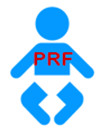Cerebral palsy is a term which encompasses a set of neurological conditions that cause physical disability in human development – they affect the brain and nervous system. The word cerebral refers to the area in the brain that is affected, while palsy means complete or partial muscle paralysis, frequently accompanied by loss of sensation and uncontrollable body movements or tremors.
Symptoms
Difficulty in sucking and swallowing feeds, abnormal muscle tone, floppiness, Delay in achieving milestones, abnormal movements, abnormal lying posture, shows preference to one side of the body and sometimes seizures. The child may have vision and hearing problems. One of the most early signs of cerebral palsy easily noticed by the mother is difficulty in changing diapers.
Regular Developmental assessments can identify cerebral palsy in the early stages and help plan suitable remedial therapy measures. As the child’s brain is still growing till 3 years of age the neurons are amenable to changes which is called neuroplasticity. Hence early identification and prompt initiation of therapy has a high chance of improving the quality of life for the child and the family.
Many children with CP have a good IQ. They have special talents too. Their potential needs to be explored, identified and channelized to achieve a near normal living.
These children need a lot of encouragement and support from their families.
